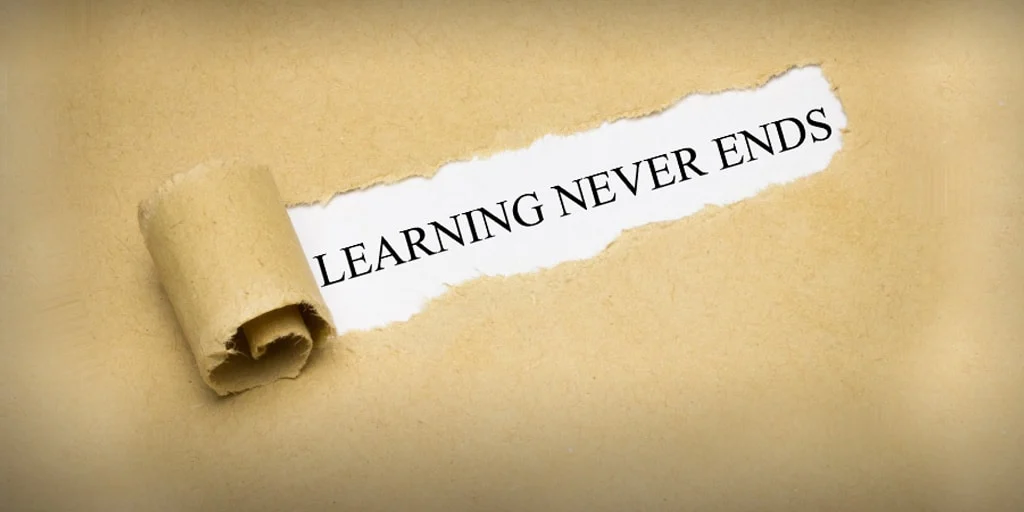Lifelong learning isn’t just a passing trend—it’s become essential in today’s ever-evolving world. Whether you’re striving to stay competitive in your profession or seeking personal growth, continuous learning is key to leading a fulfilling life. Beyond the desire to learn, certain crucial skills can make this process smoother, more enjoyable, and more productive.
The ability to keep learning throughout life isn’t simply based on intelligence or education. It depends on a combination of personal habits, skills, and mindsets. But what are these important skills, and how can you develop them? Let’s break it down.
Self-Motivation in Lifelong Learning
Curiosity: The Foundation of Learning
Curiosity is at the heart of lifelong learning. It’s what pushes you to explore new information, acquire skills, and question the world around you. To nurture curiosity, approach learning with a child’s mindset—ask questions about everything, from basic scientific phenomena to complex technological advances. A curious mindset opens doors to endless possibilities.
Fueling Motivation from Within
Internal motivation drives you when the going gets tough. It’s the deep desire to grow, learn, and improve that fuels lifelong learners. Identifying your “why”—whether it’s for personal fulfillment, career advancement, or the joy of acquiring new skills—helps maintain motivation over the long term.
Critical Thinking and Problem-Solving
Analytical Thinking for Better Decisions
Critical thinking allows you to assess situations and information logically, sifting through biases and assumptions. It’s a key skill for making informed decisions and applying practical knowledge effectively. This helps you critically evaluate what you’re learning and apply it in real-world contexts.
Creative Problem-Solving
Solving problems isn’t always about following a set process—it often requires creative thinking. Creativity helps you find novel solutions to complex problems. When combined with critical thinking, creativity expands your learning potential and enables you to tackle challenges that don’t have clear-cut solutions.
Adaptability and Flexibility
The Importance of Adaptability in a Rapidly Changing World
In a world where industries and technologies evolve quickly, adaptability is essential. Being adaptable means embracing change, not resisting it. Lifelong learners are flexible, willing to adjust perspectives and approaches as needed, making them more prepared to thrive in unpredictable situations.
Why Flexibility Matters
Flexibility is about staying open to new ideas and methods. Flexible learners are willing to try new approaches, acquire new skills, and even switch career paths if necessary.
Time Management and Organization
Making Time for Learning in a Busy Life
One of the main challenges in lifelong learning is finding time for it amidst a busy schedule. Time management helps here. Break down your learning goals into smaller, achievable tasks, and dedicate specific time slots in your routine for focused learning.
Organizing Learning with Tools
Digital calendars, task management apps, and techniques like the Pomodoro method (working in 25-minute bursts) can boost your learning efficiency. Staying organized increases productivity and helps manage the multiple responsibilities that come with lifelong learning.
Digital Literacy in the Information Age
Navigating Online Learning Resources
In today’s digital world, being digitally literate is essential for lifelong learners. Knowing how to navigate online learning platforms, effectively use search engines, and take advantage of MOOCs (Massive Open Online Courses) is crucial for expanding your knowledge.
Evaluating Credible Sources
The internet is full of information, but not all of it is reliable. Knowing how to distinguish between trustworthy and questionable sources is vital for learning effectively. Always evaluate the credibility of the content you come across online before trusting or using it.
Emotional Intelligence in Learning
Managing Emotional Reactions During Learning
Learning isn’t only about the mind—it involves emotions too. Emotional intelligence (EQ) helps you manage feelings like frustration when faced with difficult concepts. By understanding and controlling your emotions, you can stay focused and resilient.
Building Resilience for Continuous Growth
Resilience is essential in lifelong learning. Whether you’re struggling to master a new concept or juggling life’s many demands, resilience keeps you moving forward, seeing obstacles as part of the journey rather than barriers.
Communication Skills
Active Listening as a Key Learning Tool
Active listening is often overlooked, but it plays a huge role in learning. Whether you’re in a class or engaging in conversation, listening carefully enhances your ability to absorb and understand new ideas.
The Power of Asking Questions and Seeking Feedback
Never hesitate to ask questions. It’s one of the best ways to deepen your understanding. Seeking feedback also offers valuable insights into your progress, providing guidance on areas that need improvement.
Collaboration and Networking
Learning Together in Communities
Lifelong learning isn’t a solo activity. Engaging with others can enhance your learning experience. Joining study groups, networking, or participating in online forums can provide new perspectives and accelerate your progress.
Peer-to-Peer Learning
Learning from peers allows for the exchange of ideas and strategies. Teaching others can reinforce your own understanding, making peer-to-peer learning a mutually beneficial process.
Self-Reflection and Evaluation
Reflecting on Your Learning Progress
Regular self-reflection is crucial for consolidating knowledge and identifying areas of growth. Take time to reflect on what you’ve learned and how well you’re achieving your goals.
Continuous Self-Assessment
Assessing your strengths and weaknesses as a learner helps refine your approach and keep you on track with your learning objectives.
Growth Mindset and a Positive Attitude
Understanding the Growth Mindset
A growth mindset, as described by psychologist Carol Dweck, is the belief that skills can be developed through effort. This mindset encourages persistence and helps you see challenges as opportunities to improve, rather than obstacles.
Creating a Positive Learning Environment
Surround yourself with positive influences, whether through mentors or supportive peers. A positive attitude reduces anxiety and fosters creativity and innovation.
Goal Setting and Persistence
Setting SMART Goals
Specific, Measurable, Achievable, Relevant, and Time-bound (SMART) goals are essential for staying focused and motivated in your learning journey. They provide clear direction and measurable milestones to celebrate along the way.
Perseverance in Overcoming Challenges
Lifelong learning comes with hurdles, but perseverance is what sets lifelong learners apart. Embracing challenges and pushing through them strengthens your ability to succeed.
Embracing Failure as a Tool for Learning
Learning from Mistakes
Failure is an inevitable part of the learning process, but it’s also a valuable tool. Lifelong learners see mistakes as opportunities to grow and refine their skills.
Gaining Confidence from Overcoming Failures
Recovering from mistakes builds confidence, reinforcing your ability to tackle even more challenging tasks in the future.
Creativity and Innovation
The Role of Creativity in Problem-Solving
Creativity plays a key role in effective problem-solving, helping learners think beyond conventional methods and come up with innovative solutions. Lifelong learners use creativity to stay engaged and motivated.
Cultivating Innovation in Learning
Lifelong learners continually seek new ways to approach challenges and discover new subjects, keeping themselves dynamic and open to new experiences.
Conclusion
Lifelong learning is about more than gaining knowledge—it’s about developing the skills and mindsets necessary for continuous growth. From self-motivation and adaptability to emotional intelligence and collaboration, these essential skills equip you to thrive in an ever-changing world. By embracing these qualities, you not only stay relevant but also enrich your life in countless ways.





